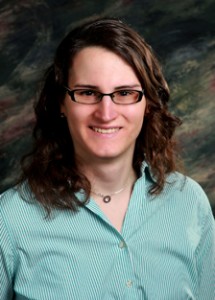
In July of 2012, I went from working over 60 hours a week as a physician to having such severe fatigue that I was unable to work at all. When I started having problems with my hearing and vision, as well as developing weakness in my hands and feet, I realized that the likelihood of me being able to practice medicine again was low. My symptoms have continued to slowly progress, but I have realized that I can’t let my disability get in the way of living life. Last summer, I took a course with the Colorado Cross-Disability Coalition to learn how to be an advocate for myself and other people with disabilities. I started doing systems-based advocacy with the CCDC, and am using my background as a physician to work to end health care inequality for the disability population. I currently serve on two Medicaid committees, and also have just started a project to try to make medical offices across Colorado more accessible and welcoming for people with disabilities. I really enjoy the work that I do, and I am excited that I still get to use my medical background to help people.
There was an article that came out recently in the Journal of Public Health that discussed some of the health disparities in the disability population. Many of these occurred because of trouble accessing care, lack of physician education about working with people with disabilities, and the accessibility of medical clinics, to name a few; and had nothing to do with the person’s disability directly. The article reminded me again how compassion, justice, and love are missing in how people with disabilities are treated in this country and across the world. As a physician with a disability, I am able to see from both sides many of the problems people with disabilities face in accessing health care. Among other things, changes to policies and procedures need to be made to make health care more welcoming of and tailored to people of all abilities, and to improve access to care.
The only way to create lasting change however, is to start to create a community of love in this country that recognizes that all people, of all abilities, are valuable and worthwhile. The disability community is one that literally anyone of any race, gender, or creed can join at any time, in an instant, for reasons that are usually completely out of their control. Many people in my community are unable to stand up and fight for their rights, because getting out of bed in the morning is an almost insurmountable victory. In order to create effective change, we must realize that there is no “us” and “them.” I believe that at it’s core, discrimination is a spiritual problem; lasting change will only be possible with a spiritual solution. I want to include spirituality in the work I am doing to break down many of the barriers people with disabilities face with trying to receive adequate health care.